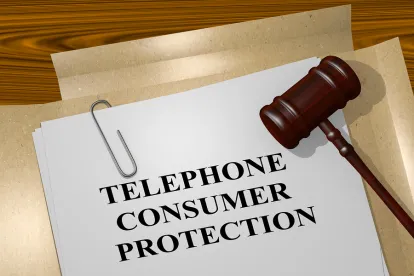Concerned about voice service providers’ “‘potential liability for blocking legitimate calls,’” three trade associations have pressed the Federal Communications Commission (FCC) to adopt a “broad safe harbor that promotes” such providers’ “good faith efforts to combat abusive robocalls.” CTIA, NCTA – the Internet and Television Association and USTelecom – The Broadband Association (the Associations) conveyed this message to the offices of all five FCC Commissioners over a two-day period last week.
The Associations noted that the creation of such a safe harbor was contemplated by the FCC’s July 2019 Third Further Notice Of Proposed Rulemaking in Docket No. CG 17-59. The Pallone-Thune TRACED Act also directed the agency to establish a safe harbor to protect voice service providers from liability for “unintended or inadvertent blocking of calls or for the unintended or misidentification of the level of trust for certain calls” in certain cases. TRACED Act §4(c)(1)(A). Under this provision, FCC must issue rules to do so by December 30, 2020.
The trio of organizations agreed that “[a]s part of a safe harbor, legitimate call originators and consumers should also have the ability to notify voice service providers when issues do arise, and providers should have procedures to address reported incidents of unintentional or inadvertent blocking, mislabeling, or misidentification of calls.”
Leaving nothing to chance as to what they “meant” by a safe harbor, the Associations proffered the following specific language for adoption by the FCC:
Safe Harbor
A voice service provider that unintentionally or inadvertently blocked, mislabeled, or misidentified the level of trust for a call shall be deemed to be in compliance with the Communications Act of 1934, as amended, and the Commission’s rules, and shall not be liable in any enforcement action or adjudicative proceeding, including any civil action, if, at the time the provider blocked or mislabeled the call or misidentified the call’s level of trust:
i. The blocking, labeling, or identification was initiated by the provider at the network level or was pursuant to tools offered to consumers on an opt-in or opt-out basis and was in connection with an event that the provider had a good-faith reason to believe was an illegal or unwanted robocall event because the provider took one or more reasonable action(s) including, but not limited to, the following:
A. Performed research on the phone number to reasonably determine the call was highly likely to be an illegal robocall;
B. Implemented reasonable procedures to block calls in a manner consistent with the Commission’s rules; or
C. Utilized reasonable analytics, which may include information provided by call authentication frameworks.
ii. The provider had procedures in place for blocking, labeling, or identification that were reasonably likely to confirm that calls blocked, labeled, or identified were limited to illegal or unwanted robocalls and the provider followed these procedures;
iii. The provider had procedures in place to address reported incidents of unintentional or inadvertent blocking, mislabeling, or misidentification of such calls; and iv. The provider made reasonable efforts to avoid blocking, mislabeling, or misidentifying emergency public safety calls.
iv. The provider made reasonable efforts to avoid blocking, mislabeling, or misidentifying emergency public safety calls.
We will see if the FCC takes up the Associations’ offer.




 />i
/>i

